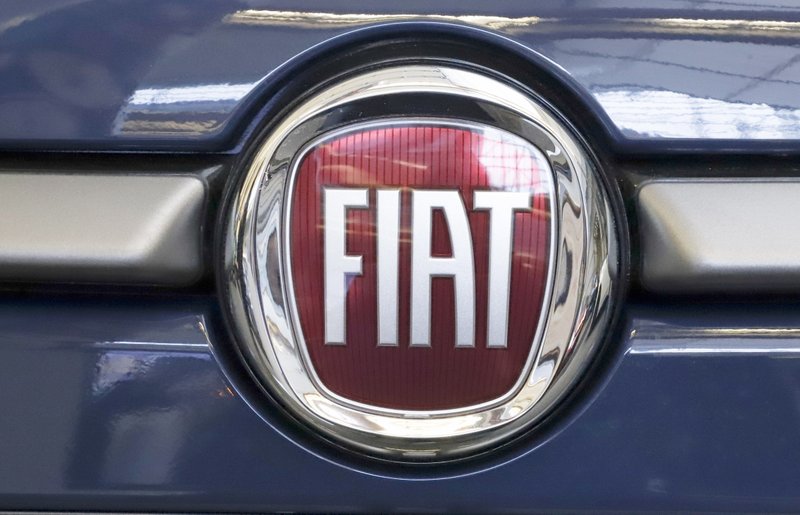DETROIT -- The United Auto Workers and Fiat Chrysler reached a tentative agreement Saturday on a new four-year contract, which includes a total of $9 billion in investments but still needs final approval from workers.
Both sides declined to offer details on the deal, but it includes a $9,000 bonus for workers when the agreement is ratified, a promise not to close any factories where vehicles are assembled for the next four years, and a commitment to keep making vehicles at a plant in Belvidere, Ill., according to a person briefed on the matter. The person spoke on condition of anonymity because the talks are confidential.
The United Auto Workers and Fiat Chrysler Automobiles national council plan to meet Monday to go over the details of the tentative deal. If adopted, the deal would then go to Fiat Chrysler Automobiles' 47,000 union workers, and a vote by hourly and salary workers could begin by Wednesday.
Fiat Chrysler is the last company to settle on a new contract with the union. GM settled Oct. 31 after a bitter 40-day strike that paralyzed the company's U.S. factories, but Ford reached a deal quickly and settled in mid-November.
Talks have focused on Fiat Chrysler for almost two weeks, and both sides negotiated into the early morning hours last week before taking a break for the Thanksgiving holiday.
The Illinois factory west of Chicago now makes the Jeep Cherokee small SUV and employs about 3,700 union workers on two shifts.
Of the $9 billion in total investments included in the deal, half were newly announced Saturday, and the other $4.5 billion are investments announced earlier this year.
The $9,000 ratification bonus isn't as much as the $11,000 that GM workers got, but it's equal to the money paid to Ford workers. Both companies gave workers a mix of pay raises and lump-sum payments, ratification bonuses, an end to a two-tier pay scale for full-time workers and a clear path for temporary workers to go full time.
The union also got commitments for new vehicles to be built at several GM and Ford factories.
Even if union leaders approve the deal, ratification isn't guaranteed. In 2015, workers voted down the first deal reached with Fiat Chrysler but approved a second one.
Fiat Chrysler apparently is agreeing to the "pattern" agreement reached with GM and Ford even though the company's CEO said last month that all of the companies are in different labor circumstances. Following the same deal would cost Fiat Chrysler more because the makeup of its workforce is different. Fiat Chrysler has more temporary workers than either GM or Ford, and it has more "second tier" workers hired after 2007 who now make less than longtime workers.
The deal with Ford and GM gives pay raises to workers hired after 2007, so they reach top union production wages of more than $32 per hour within four years. It also gives temporary workers a path to full-time jobs within three years.
Ford has about 18,500 workers hired after 2007 who will get pay raises with the new contract, compared with GM's 17,000. Fiat Chrysler has more than 20,000 union employees hired after 2007.
In addition, about 11% of Fiat Chrysler's union workforce is temporary, while Ford has a cap at 8% and GM is around 7%.
Fiat Chrysler in past years has had a labor-cost advantage compared with Ford and GM. Fiat Chrysler's labor costs, including wages and benefits, amounted to $55 per hour going into the contract talks, while they were $61 at Ford and $63 at GM, according to the Center for Automotive Research, an industry think tank. That compares with an average of $50 per hour at U.S. plants owned by foreign-based automakers.
In November, General Motors filed a federal racketeering lawsuit against Fiat Chrysler, alleging that the company bribed UAW officials to get more favorable contract terms than GM. Fiat Chrysler has called the lawsuit "meritless."
General Motors alleges that the move, which it contends cost it billions of dollars, was aimed at forcing a merger with Fiat Chrysler that was sought by Fiat Chrysler Automobiles CEO Sergio Marchionne, who died in 2018. Last month, Fiat Chrysler announced plans to merge with France's PSA, which will create the world's fourth-largest auto company worth $50 billion.
The Fiat Chrysler talks could be complicated by an ongoing federal bribery and embezzlement investigation into some of the United Auto Workers' leadership, which started at Fiat Chrysler. Many workers at the company have been suspicious of the union's leadership since the scandal became public in 2017.
A Section on 12/01/2019

